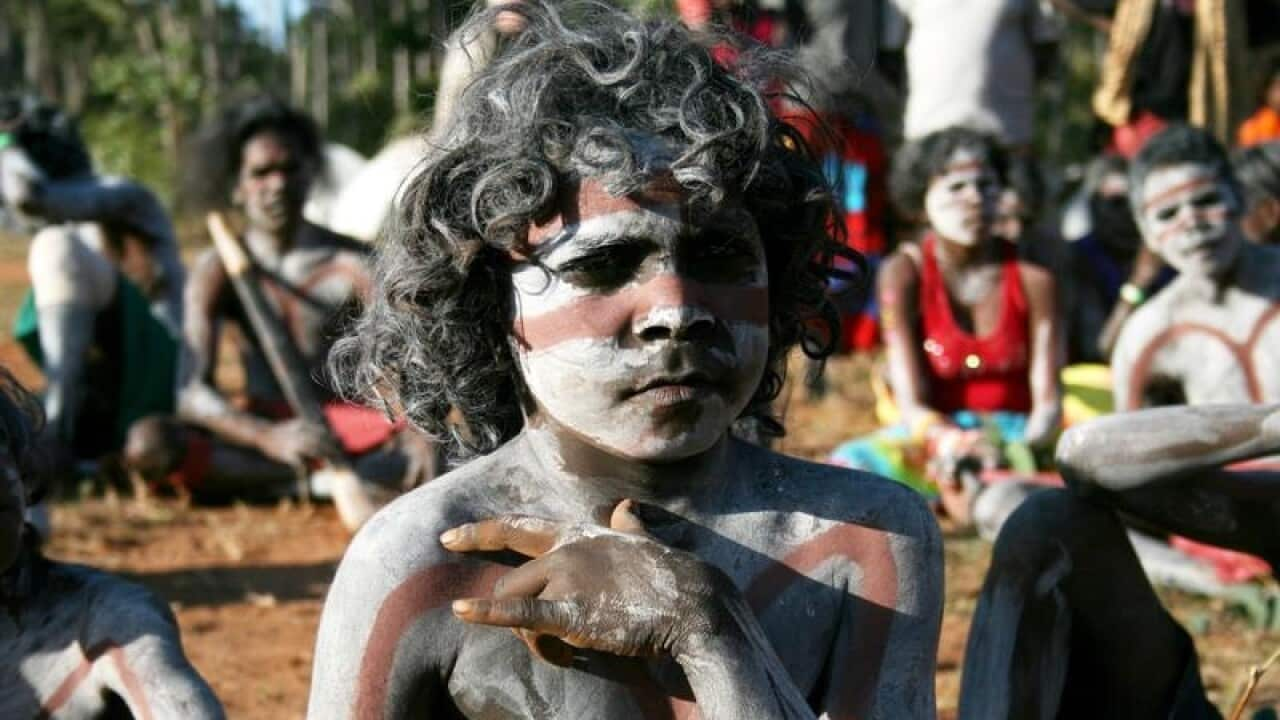Nine months after Prime Minister Malcolm Turnbull rejected the idea of an Indigenous voice to parliament, many are working to put it back on the agenda.
The Joint Select Parliamentary Committee on Constitutional Recognition relating to Aboriginal and Torres Strait Islander Peoples has handed down its interim report, which focuses on the proposal of an Indigenous voice to parliament.
Committee Co-Chair and Liberal MP Julian Leeser said he has heard a clear message from Indigenous Australians.
"They do want a greater say, greater engagement of the policies and issues that affect them, and that's what [the Uluru Statement] was all about," he told NITV News.
"What happened at Uluru was such a sea change in this debate and [The Uluru Statement] gave us direction about being engaged and consulted on public policy."
Labor MP and Committee Co-Chair Pat Dodson also said they had received overwhelming evidence indicating Indigenous people want a more meaningful say in the issues that impact on their lives.
"Certainly the support for the notion or the concept of a 'voice' is very strong, it's very strong, and that's very pleasing," he told NITV News.
"Labor has always supported the Uluru Statement and remains committed to working with First Nations people to ensure their voices are heard, including through a voice to parliament."
NT Labor Senator and committee member Malarndirri McCarthy said while the federal opposition supports constitutional recognition, successive coalition ministers have stalled its progress.
"That is why the work of this committee is so important. So far the committee has received more than 381 submissions which gives ideas and shape to a model of a voice and truth telling," she told NITV News.
The committee's report considers the evidence in relation to the 'constitutionality, structure, function and establishment' of the voice to parliament, and looks at past and existing advisory bodies like ATSIC and the National Congress of Australia's First Peoples, as well as newer models that could inform its design.
Mr Leeser says the detail is critical.
"Our job in this committee is to put the meat on the bone of this particular proposal and work out how that works," he said. "I think the work we are doing is very important, but it's very detailed, and it's important we get that detail right."
The committee has posed a range of questions for people to respond to in a bid to flesh out the detail.
When the Referendum Council tabled its final report in June 2017, Prime Minister Malcolm Turnbull rejected its key recommendation of an Indigenous voice to parliament because the government did not believe it was either 'desirable' or 'capable of winning' at a referendum.
Mr Turnbull also said a voice to parliament was "big idea" that lacked detail, and claimed it would be 'unconstitutional', likening it to a 'third chamber of parliament'.
Last month, a group called Uphold and Recognise launched a campaign with a sweeping set of new proposals detailing pathways to how the voice to parliament could be constitutionally enshrined. Mr Leeser was one of the co-founders of the group in 2015 but stepped away after being elected as a Liberal MP.
The proposals include two suggestions for how Indigenous voices might be recognised and provides draft legislation showing how each suggestion might be implemented by Parliament.
This was only one of many proposals considered in the Joint Select Parliamentary Committee's report.
"There's a range of proposals and options as to how a voice might work and what it might look like," Mr Dodson explained.
"We've had over 300 submissions, we've been to about 11 locations, and gradually, as we've gone on with the task, people have been very constructive in putting proposals to us and so now we have a report that highlights some models and highlights some of the challenges."
Need for local voices to be heard
One of the committee's biggest challenges is ensuring local and regional voices are heard.
Mr Leeser explained many Indigenous people recommended establishing both local and regional voices as their challenges differ depending on the area where they live.
"The idea of having a local voice and a regional voice has come through very strongly in the report," he added.
Mr Dodson said the connections between a national and a regional voice will need to be ironed out to progress.
"People see a lot of the local challenges as a bit divorced from the national arena," he said.
"It doesn't mean the national arena or the importance of the federal government diminishes, but they want do things that will be able to fix up the social circumstances and the appalling incarceration rates that are really part of the jurisdiction of states," he said.
"So that balance impacts what a national a voice might do and how it might interface with the parliament."
The committee says it will continue to hold consultations with Aboriginal and Torres Strait Islander peoples and the broader community.
A final report is expected to be presented on 29 November 2018.












